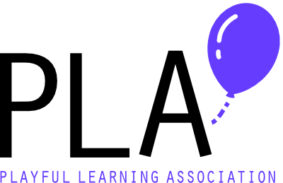Avert Climate Change – a climate conference simulation game
Corresponding Author: Annette Kern
All authors:
Length: 90 minutes
Location: Gallery Room 1
Description:
This session invites participants to 1) play a climate conference simulation game, 2) discuss what can be learned by this game, and 3) get a mini-intro in how games like this can be programmed using google sheets.
The simulation game was created to help upper secondary and university students to experience, understand and discuss challenges and obstacles involved in the cooperation for climate change mitigation. Participants take on the role of country representatives who are called to decide – within a given time limit – on how to reduce worldwide CO2 emissions to a set target and who will finance it. Like in the real world, the countries differ regarding size, economic wealth, previous and projected future emission levels, mitigation cost and anticipated affectedness by climate change, so conflicts are inevitable. The game design requires the countries to negotiate national reduction targets and compensation payments, reaching some common understanding about what is fair and sensible (from a cost efficiency point of view) in order to jointly avert climate change and thus win the game. The simulation is digitally supported: countries’ mitigation proposals or financial commitments are entered in an online input mask, with real time updates displayed for all players to see the effect on the overall mitigation target and countries’ economic situations.
After playing the game, there will be a discussion about what learners might take away, to what extent the game illustrates real world dilemmas and conflicts, and the potentials of cooperative simulation games in general. Constructive feedback how the simulation may be improved or amended for different target groups will be very welcome!
Finally, there will be a short presentation about how the game was developed from a paper version to the digitalized version. It was made using google sheets, so no special software or advanced programming skills were necessary. Hopefully it will inspire and encourage creative people with limited digital skills and equipment to create their own digitalized games.
References, web links and other resources:
The German paper version of the game is set to be published in 2024 by the Landeszentrale für politische Bildung Baden-Württemberg, I will submit the exact reference once it’s known.
At the moment, the virtual version of the game is only in German and only available in parts, but it will be completed in the coming weeks for a first trial run at a virtual Erasmus student seminar (with participants spread over Europe) in March. If you (the review panel, not the participants…) would like to take a peep at the current state of the game design and function in google sheets, send me an email and I will share access.
